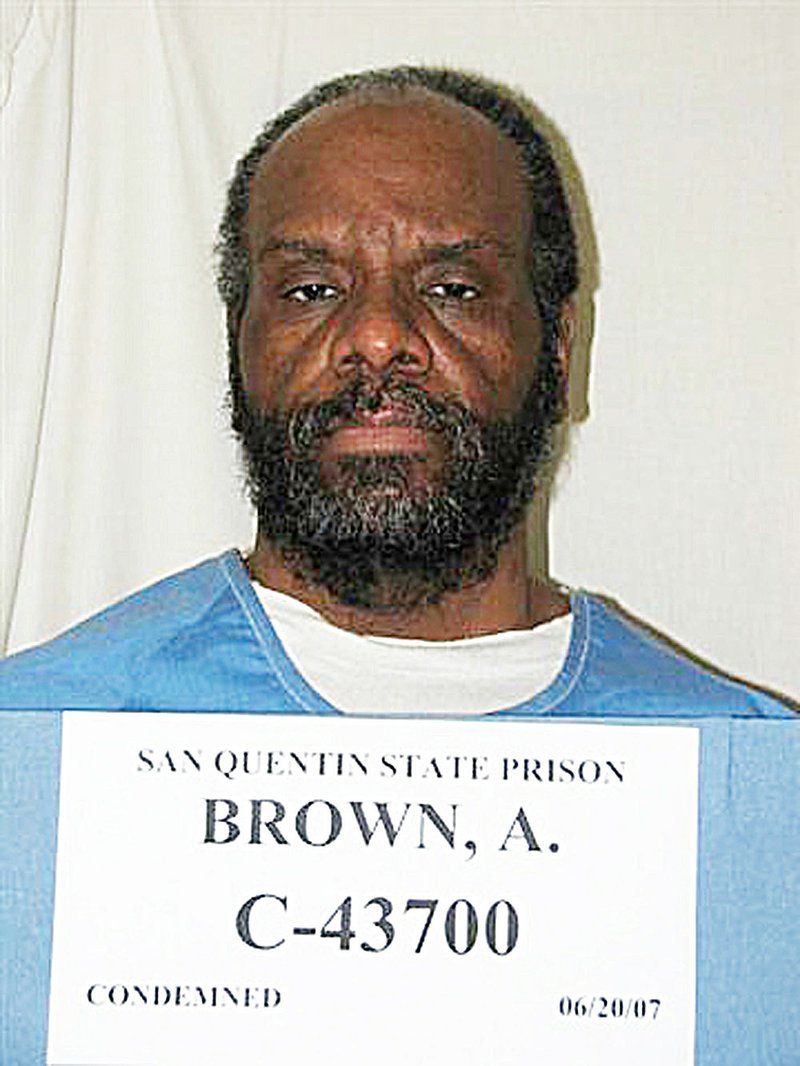LOS ANGELES — Today, almost three decades after 15-year-old Susan Jordan’s family received a call telling them they’d never see her again, they had hoped to see the execution of the man who placed that taunting phone call.
Instead, California officials on Wednesday called off what would have been California’s first execution in nearly five years.
The night of the phone call, her father and two brothers leaped into a truck and drove frantically around their neighborhood screaming her name. Another call from the man directed them to look in a nearby orange grove, where a police dog led officers to the girl’s body.
Albert Greenwood Brown was convicted in 1982 for Susan’s murder and was sentenced to death.
Though Susan’s killing on Oct. 28, 1980, sparked a flurry of media attention in Riverside, a sprawling city about 60 miles east of Los Angeles, much of the publicity around the case has focused on Brown and his exhaustive legal maneuvers to avoid the death penalty.
However, letters and messages recently sent by relatives of Susan to Gov. Arnold Schwarzenegger pleading with him not to grant clemency provide a glimpse of the family’s anguish. Susan’s younger brother James Jordan, who was 7 at the time of her death, described how he was standing next to his mother when Brown called.
“I remember her pleading with him and the look of terror on her face,” James Jordan wrote.
Susan’s mother and two of Susan’s three siblings have written to Schwarzenegger expressing anger over the length of the process.
After decades of appeals and reversals, the courts ultimately upheld Brown’s death sentence, and he was scheduled for execution this week.
However, U.S. District Judge Jeremy Fogel on Tuesday halted the execution, saying he didn’t have enough time to weigh arguments by Brown’s lawyers, who allege that the state’s revamped lethal-injection process had done little to improve problems that caused Fogel to halt executions in 2006.
The state tried to appeal that decision to the 9th U.S. Circuit Court of Appeals. But after another unfavorable ruling by the California Supreme Court, it conceded Wednesday that the execution can’t happen as planned.
The California attorney general’s office notified the appeals court Wednesday that it was unable to execute Brown.
If the decision isn’t reversed by Friday, the state will be unable to execute Brown - orany other death-row inmate - for several months because the state’s entire supply of sodium thiopental expires Friday. The chemical is used to sedate inmates before they are fatally injected with two other drugs.
Next year is the earliest the state can restock its supply of sodium thiopental.
“I’m relieved,” said John Grele, one of Brown’s attorneys. “This was a hastily designed plan.”
A spokesman for the Riverside district attorney said some of Susan’s siblings have been planning to travel to San Quentin to witness the execution.
“You and your lawyers have had the audacity to plead for your life by unjustly dragging out your sentence for nearly 30 years,” Susan’s mother, Angelina Jordan, wrote in a Sept. 1 letter to Brown. “Your day of accountability is now upon you. The Jordan family will be watching.”
Susan’s younger sister, Karen Brown, wrote: “The real tragedy of waiting 30 years is that nobody, apart from friends and family, even know who she is.” She added: “Now all the public knows is that some faceless teenage girl was murdered back in 1980. What they see instead is the face of her murderer.”
Police found Susan’s body face down in the dirt amid orange trees a block from her high school. Albert Brown had pulled her into the grove as she was walking to school. He raped her then strangled her with one of her shoelaces.
Albert Brown had been released from state prison four months before the killing after serving time for the 1978 rape of a 14-year-old girl. Like Susan, the victim in that case had dark hair and eyes.
Repeated phone calls and e-mails left with Susan’s mother and siblings were not returned.
James Clark, death penalty policy coordinator for the American Civil Liberties Union of Southern California, said the case demonstrates why capital punishment should be scrapped for life in prison without the possibility of parole.
He argued that if a family knows a killer is sentenced to life, the limbo of waiting for a death sentence to be carried out is eliminated.
Hudson Joel Brown, who is married to Karen Brown, said relatives wanted the death sentence.
Rod Pacheco, the district attorney for Riverside County, has been working hard to ensure that Albert Brown is executed. He filed a 25-page petition with Schwarzenegger outlining why Albert Brown’s sentence should be carried out.
“Evil does exist in this world, and he is it,” Pacheco said in an interview. “He has shown no remorse whatsoever.” Information for this article was contributed by Paul Elias of The Associated Press.
Front Section, Pages 4 on 09/30/2010
